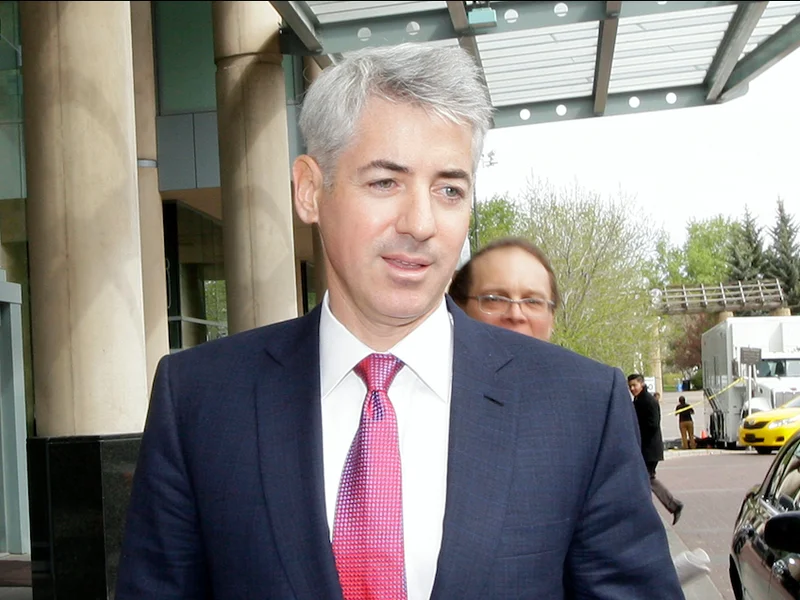Bill Ackman's Trump Endorsement: The Hidden Tech Vision and What It Means for Innovation
I’ve seen a lot of headlines about billionaires lately. Mark Zuckerberg’s $2.5 million watch, Taylor Swift’s globe-trotting private jet. These stories paint a picture of a life so far removed from our own that it might as well be science fiction. But then a story comes along that’s so wonderfully, bizarrely human it stops you in your tracks.
It’s about hedge fund manager Bill Ackman, a man with a net worth north of eight billion dollars. And what’s the big story? He drives around Manhattan hunting for the cheapest parking spot.
Let that sink in. A man who could buy the entire parking garage—heck, he used to own one of North America’s biggest parking companies—is circling the block to save maybe ten or fifteen bucks. On the surface, it’s absurd. It’s the kind of detail that makes you chuckle. But when I first read about the Former US parking-company tycoon worth $8,400,000,000 has a frugal driving habit you wouldn’t expect, after the initial laugh, something else clicked. When I first saw the demo, I honestly just sat back in my chair, speechless. Because this isn't a story about frugality. It’s a story about a mindset. It’s a rare, public glimpse into the operating system of a person who sees the world not as a series of transactions, but as a series of systems to be optimized.
The Algorithm of a Restless Mind
We tend to think of genius or innovation as this grand, lightning-bolt event. A scientist in a lab, a coder pulling an all-nighter. But what if it’s something quieter? What if it’s a low-humming, persistent algorithm that runs in the background of your mind, constantly scanning for inefficiencies?
That’s what I see in Ackman’s parking habit. He’s not saving money; he’s rejecting a broken system. He’s refusing to accept the default setting. Think about it: the price of a garage isn't based on some universal law of physics. It’s an arbitrary number set by an owner to maximize profit, often preying on convenience. For most of us, the convenience is worth the cost. We sigh, we swipe our card, we move on. But for a mind wired like his, that arbitrary inefficiency is like a bug in a line of code. It’s an error that must be corrected.

This is a form of computational thinking—in simpler terms, it means breaking down a problem into its component parts and finding a more logical solution. He’s not just looking for a cheaper spot; he’s running a real-time analysis of time, distance, and value, and he’s doing it out of principle. His father’s annoyance over a light left on wasn’t about the electricity bill; it was about waste. It was about a system not running at peak efficiency. This drive is so powerful because it scales—the same mental process that refuses to overpay for parking is the one that identifies an undervalued company or a flaw in a market strategy, and the speed of this is just staggering—it means the gap between a small, personal inefficiency and a multi-billion dollar market opportunity is closed by the exact same way of thinking.
What if we all had a little more of that? What if we questioned the small, frustrating inefficiencies in our own lives with that same intensity? What broken systems would we start to fix?
Beyond the Balance Sheet
It’s easy to dismiss this as the quirk of a rich guy. But I think it’s a profound metaphor for the very engine of progress. The history of human innovation isn’t a story of people accepting the world as it is; it’s a story of people who were fundamentally annoyed by it. The person who invented the wheel was probably just tired of carrying stuff. The Wright brothers looked at the sky and felt the inefficiency of being stuck on the ground. This is the innovator’s itch—a deep-seated refusal to accept a suboptimal reality.
This mindset is the complete opposite of passive consumption. It’s active engagement with the world. It’s the difference between buying a product and taking it apart to see how it works. It’s a throwback to an earlier era of innovators, a kind of modern-day Ben Franklin, meticulously tracking virtues and optimizing his daily schedule. It’s a striking parallel to the garage tinkerers of the 70s who saw massive mainframes and thought, "There has to be a more efficient, more personal way to do this." They weren’t just building computers; they were fixing a system they saw as bloated and inaccessible.
Of course, there’s a responsibility that comes with this kind of power. A mind that can optimize systems for immense personal gain also has the capacity to apply that same logic to bigger, more human-centric problems. The real challenge for anyone with this gift isn't just to build a bigger portfolio, but to debug the broken systems in our society—in healthcare, in education, in energy. The goal can’t just be personal efficiency; it has to be collective progress. But it all starts with that same restless spark: the simple, powerful, and deeply human refusal to accept that "this is just the way things are."
The OS of Innovation
Forget the billions for a second. Bill Ackman’s hunt for cheap parking isn’t a sign of stinginess; it’s a beautiful, observable expression of the operating system that drives true innovation. It’s a restless, relentless pursuit of a better, more efficient way. It’s proof that the mindset that changes the world doesn’t always live in a lab or a boardroom. Sometimes, it’s just circling the block, looking for a better deal, fundamentally refusing to accept a system that doesn’t make sense. And that, right there, is where the future begins.
Tags: bill ackman
Volvo's Record Stock Performance: What the Profit Report Actually Reveals
Next PostThe Gold Price Chart's Hidden Story: What Its All-Time Highs Reveal About Our Future
Related Articles
